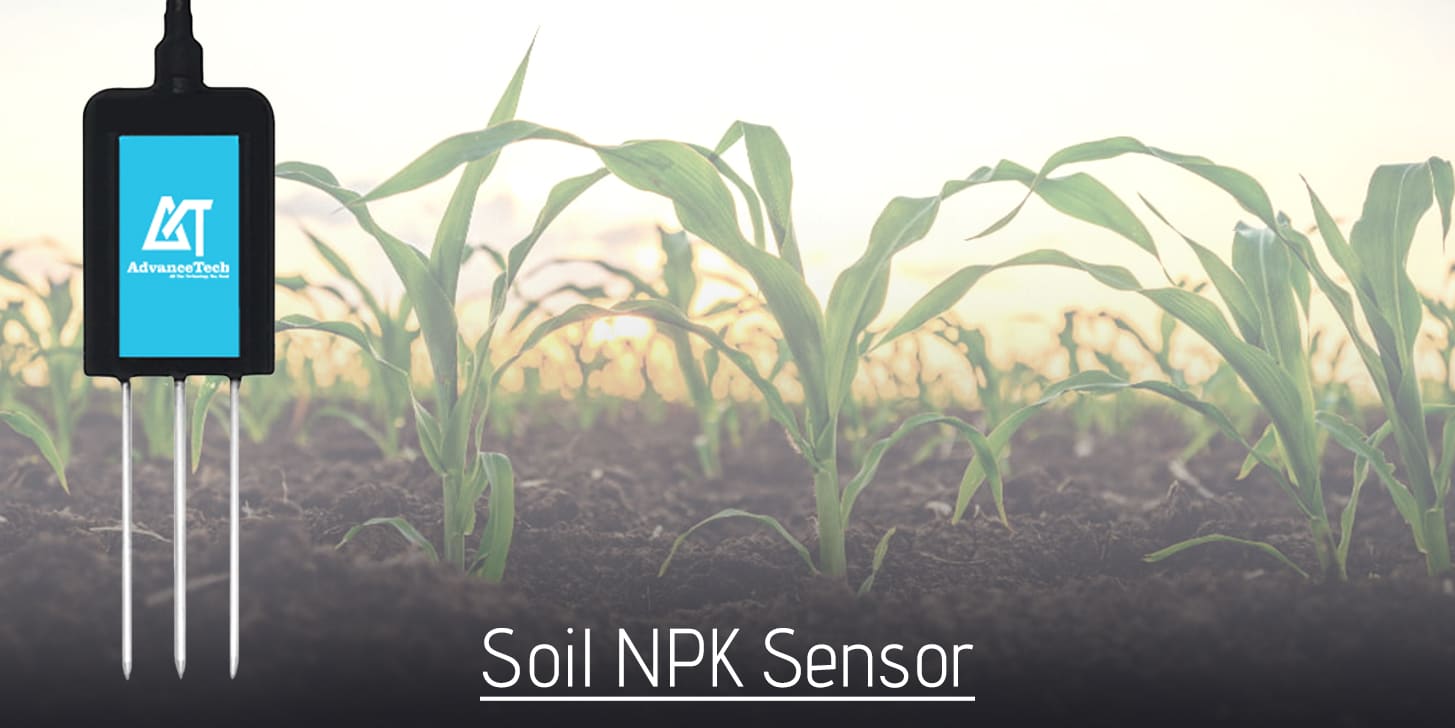Introduction: In the ever-changing field of agriculture, technology is considered an important factor for farmers in the world. There are many developments, one of the best innovations is soil nutrient sensors that are really effective as well as safe for crop management. One such invention is the Soil NPK Sensor, a tool that is helpful in gauging the concentrations of the three major nutrients in soil: potassium (K), phosphorus (P), and nitrogen (N). This blog contains and everything about the soil NPK sensors which will also cover their importance, advantages, uses, and effects on agriculture.

Table of Contents
ToggleUnderstanding Soil Nutrients
It is very important to understand the importance of soil nutrients in the field of agriculture before knowing in detail about Soil NPK Sensors. These are some basic as well as necessary components for the plant’s growth and development so this includes phosphorus, nitrogen, and potassium. They are critical to several physiological functions of plants, including energy transport, photosynthesis, and the manufacture of vital chemicals. These nutrients may have a major effect on crop quality, yields, and overall agricultural production.
Conventional Methods vs Soil NPK Sensors
In the past, observing the nutrient levels in soil required time as procedures contain soil sampling, laboratory analysis, and manual result interpretation. In addition, this is a time-consuming process and does not provide current time data which creates problems for the farmers as they can’t act quickly and decisively. However, the use of Soil NPK Sensors has completely changed this facet of agriculture, as this provides accurate and immediate measurements of NPK levels right in the field. These sensors help to provide farmers with important information about the nutritional condition of their soil by using modern technologies to observe soil samples on the spot.
Functionality of Soil NPK Sensors
NPK in the soil A technique called electrochemistry, and ion-selective electrodes are just a few of the principles that sensors use to measure and identify the amounts of nutrients in soil samples. Typically, these sensors are integrated into an embedded probe or probe array, a data-gathering system, and software for data interpretation and analysis. The sensor interacts with the soil when it is inserted, measuring things like electrical conductivity, moisture content, and nutrient ion concentration. Farmers can utilize the processed and graphical representations of the data to make well-informed decisions about crop management, irrigation, and fertilizer application.
Benefits of Soil NPK Sensors
Some of the benefits of the Soil health monitoring system are mentioned below.
Accurate Farming
Accurate agriculture is made possible only because of soil NPK sensors, which provide advice for managing nutrients particular to a given site. Farmers can maximize the use of resources and minimize the environmental effect by customizing fertilization methods to match crop-specific needs through accurate assessment of soil nutrient levels.
Cost Savings
These Soil NPK Sensors are cost-saving too as these sensors help farmers lower input costs related to fertilizers by reducing needless fertilizer applications and increasing nutrient use efficiency, hence this improves the overall farm profitability.
Environmental Sustainability
Reduced nutrient runoff and decreased danger of water pollution are two ways that Soil NPK Sensors support environmental sustainability by limiting the overapplication of fertilizers. In addition to protecting natural resources for upcoming generations, this supports healthier ecosystems.
Time-saving Techniques
One of the best benefits is time-saving techniques as this saves a lot of time for the farmers. And farmers do not need to wait for a long time for the results. Another benefit is that Real-time data are provided by soil NPK sensors. By doing this, farmers are able to focus on other areas of farm management during crucial growing season phases, saving them important time.
Impact on Modern Agriculture
Soil NPK Sensors have a significant effect on the sector. These impacts are:
Increased Productivity
The soil NPK sensors had a great impact and increased productivity by enchasing crop yields and enhancing overall agricultural productivity by optimizing nutrient management and crop health. This is more important in those areas where there are problems with water scarcity, climate variability, and soil degradation.
Improved Environmental Efficiency
Because they limit nutrient losses, lessen their negative effects on the environment, and protect soil health for future generations, soil NPK sensors are essential to the advancement of sustainable agriculture techniques. This is in line with international initiatives to achieve environmental sustainability and food security.
Technological Advancement
An important development in agricultural technology is the creation and application of Soil NPK Sensors. These sensors have the potential to further revolutionize farming processes and increase efficiency as they develop and incorporate features like wireless connectivity and remote sensing capabilities.
Future Directions
Furthermore, Soil NPK Sensors have a very bright future. To fully realize the promise of these revolutionary technologies and overcome current issues, researchers, industry stakeholders, and policymakers must continue to innovate and collaborate. Farmers may set the path for a future in agriculture that is more robust, productive, and sustainable by utilizing the power of Soil NPK Sensors.
Conclusion
To conclude, Soil NPK Sensors are very helpful in agriculture because they not only provide real-time data but also provide quick responses. This uses all modern techniques which makes it fast and more accurate.







